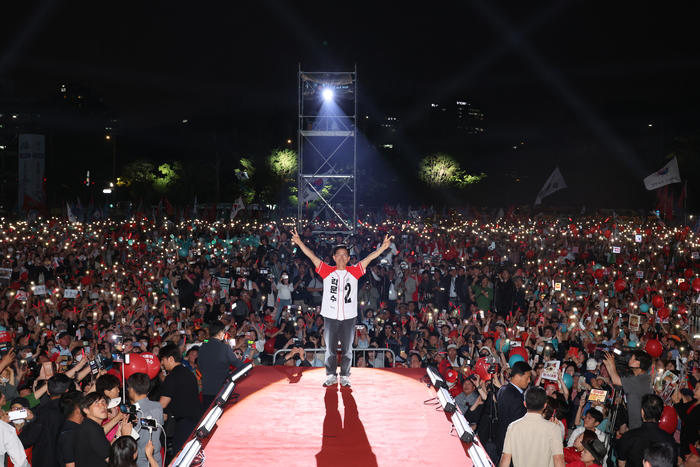On June 3, 2025, Lee Jae-myung of the Democratic Party of Korea was elected as the 21st President of South Korea. The AsiaN is publishing the hopes and expectations of Koreans for the new president and administration in both Korean and English editions. We welcome the interest, feedback, and constructive criticism of our readers.
The AsiaN Editorial Team

By Oh Kwonsoo, Achasan Hermit
CEO of Shindo Atom Five
SEOUL: Lee Jae-myung, once a factory boy!
Lee Jae-myung, who earned his academic credentials through equivalency exams!
Lee Jae-myung, who became mayor of Seongnam in his 40s!
Throughout Korea’s 5,000-year history, countless uprisings have sought to make the people the true sovereign. Yet it is only now that the term “first president from a working-class background” genuinely applies. Lee Jae-myung’s election as the Democratic Party’s candidate is the result of public resistance to entrenched privilege and a strong desire for reform.
His administration must be guided by five strategic pillars: (a) restoring the people’s livelihood and economy, (b) achieving social integration, (c) reforming the judicial and administrative systems, (d) formulating peace and coexistence strategies with neighboring countries and North Korea, and (e) establishing a long-term national vision.
Above all, economic stability must come first. As citizens face inflation, low growth, and deepening inequality, swift and effective policy implementation is crucial. Bold debt relief measures are needed for self-employed individuals and small business owners who are still reeling from the COVID-19 crisis. Laws like the “Yellow Envelope Act” and the “Grain Management Act” must go beyond symbolism to provide tangible benefits to workers and farmers. Job creation for youth and seniors must be felt in real terms.
Equally essential is national unity through inclusive appointments and the dismantling of outdated political practices. The recent election revealed profound national division—between generations, regions, and genders—rendering society nearly paralyzed. The political class must avoid factionalism and retaliation, and instead solidify democratic institutions through bipartisan cooperation. Political reforms, including changes to the electoral system, must also be pursued.
Korea’s economic structure must be transformed. Future growth engines such as artificial intelligence must be cultivated, and strategic investment in industries—especially in response to challenges in the semiconductor sector—should be prioritized. Regional development must be balanced with the creation of quality jobs.
Educational reform and social welfare enhancement are also vital. The previous administration’s failure to address the medical school quota issue must be rectified to restore public trust. Investment in regional universities, college admissions reform, and curriculum restructuring must be approached through two-way communication. Welfare policies like basic income should be tested boldly to close coverage gaps and reinforce universality.
Foreign and security policy must also be redefined. The outdated Cold War mindset must be discarded. Amidst a multipolar world order, Korea must skillfully balance the US-China rivalry and implement diplomacy centered on national interest. Practical engagement with North Korea, such as extending Siberian pipelines to Busan through the North, can yield mutual benefits. Diplomatic efforts should aim for a transition from armistice to a permanent peace treaty in cooperation with global powers like the US, China, Russia, and Japan.
Climate crisis response is another urgent task. A balanced energy strategy combining nuclear and renewable sources is essential. Introduction of industrial carbon taxes and fair energy transition policies that consider rural and vulnerable communities must also be implemented.
The key to overcoming the governance failures of the Yoon Suk-yeol administration lies in how quickly public trust can be restored across all sectors. This requires public sector reform, citizen-participatory administrative innovation, and the establishment of a transparent and trusted government through open information.
President Lee’s strength lies in his ability to empathize with “the people at the margins,” having grown up with limited access to basic necessities. His practical approach to governance—“when you work, you find a solution”—must guide bold reforms and grand social compromises. He must act with the determination of a public servant willing to devote himself fully, even to the point of sacrifice, and pursue long-term vision over short-term gains. By doing so, and by continuously communicating with the public, he can embrace even the 50.68% of voters who did not support him.
With this sincere hope, I conclude this letter.




